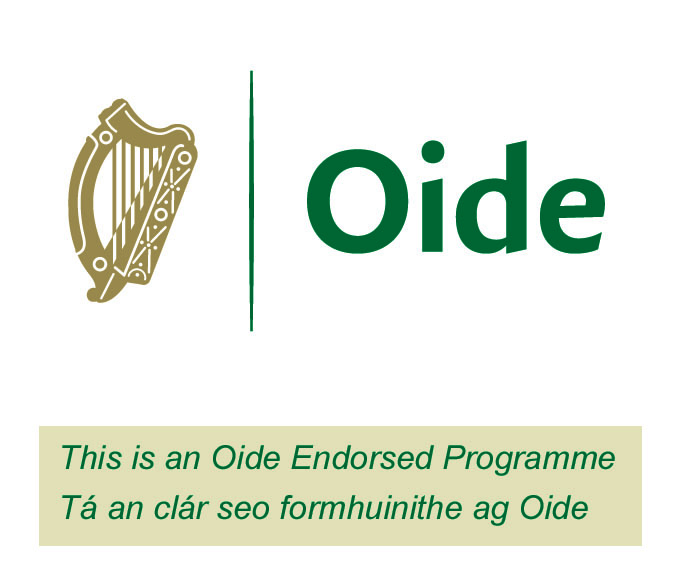The PDEL and the Masters (year 2) deploy a broad concept of leadership that can be applied to teachers at different stages of their career within schools as organizations. Each of the programmes will include some face-to- face sessions (typically on Saturdays to accommodate travel and attendance from all corners of the country). Our experience is that the combination of on campus days and online teaching and learning provide a dynamic and transformative learning experience for all students. We are committed to developing our students’ critical voice through reading, discussion, peer learning, presentations and critical review. Furthermore, these participative learning experiences will ensure that high quality learning outcomes are achieved. The programme encourages students to become autonomous learners and critical thinkers who will contibute to school and system leadership in education. The programme employs a wide variety of teaching and learning approaches, including lectures, tutorials, collaborative groupwork and problem-based learning activities delivered in a blended /online format using a jusdicious mix of on-campus weekend end seminars and syncronous online tasks and activities. A range of assessment strategies are used including individual and group class presentations, group assignments, case study and applied analytical studies.
- 1) Make explicit connections between module content, coursework and professional practice.
- 2) review and evaluate a range of policy measures and initiatives and critique these in the context of the school improvement and effectiveness.
- 3) reflect purposefully and critically upon their own skills and limitations as leaders, evidenced by their performance in working with groups and their overall learning outcomes on the programme.
- 4) demonstrate a thorough understanding of key theories of organisational behaviour and change and apply these theories in an organizational setting.
- 5) Demonstrate a well developed understanding of the limits, contradictions and emerging issues within the professional field.
- 6) Evidence an enhanced aptitude for continued self-directed learning as well as collaborative learning in professional settings throughout their careers.
- 7) Cultivate a disposition that combines passion with purpose, empathy and understanding with cognitive challenge, resilience and hardiness in the context of professional practice.
- 8) Demonstrate the skills of interrogating practice using theoretical perspectives, thus generating new ideas and/or reformulating existing ideas and practices in relation to professional roles.
- 9) Evidence the significance of reflection in the development of expertise and innovative practice thus providing leadership within schools and the wider education community.
- On successful completion of the programme, students will be able to: 1) critically explore and interrogate prominent leadership theories and apply these theories in the course of addressing a variety of organisational issues and problems.
